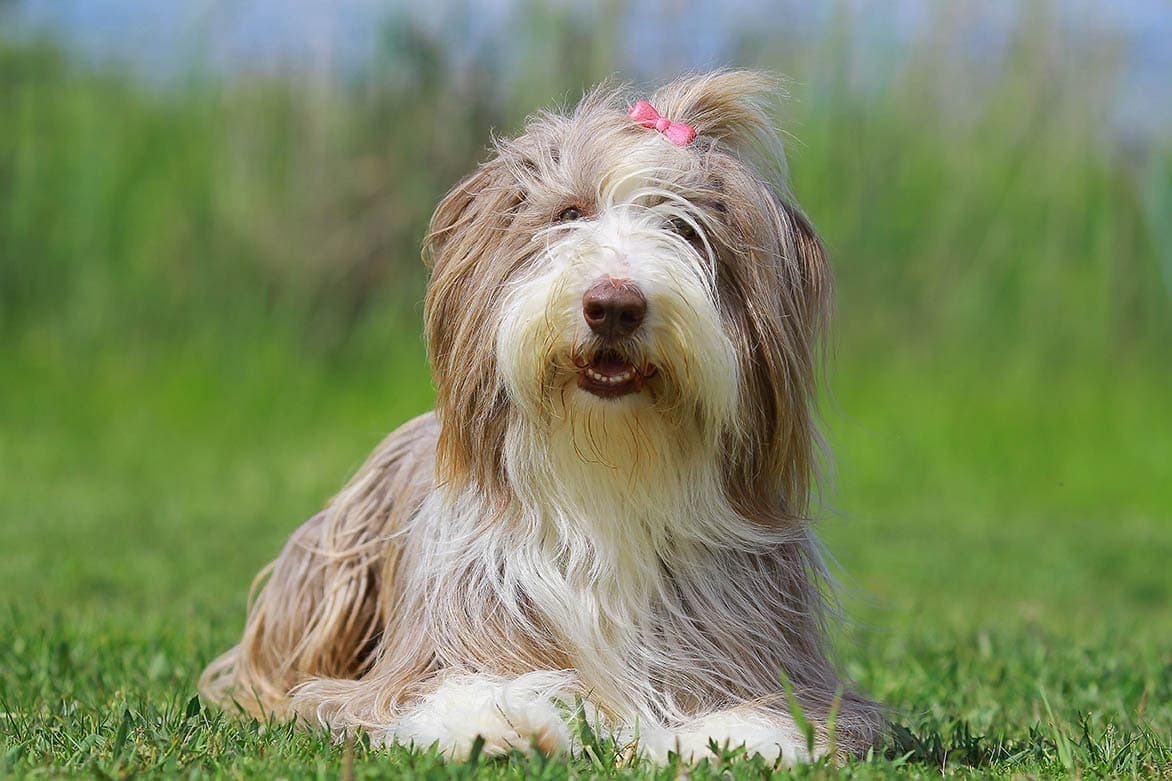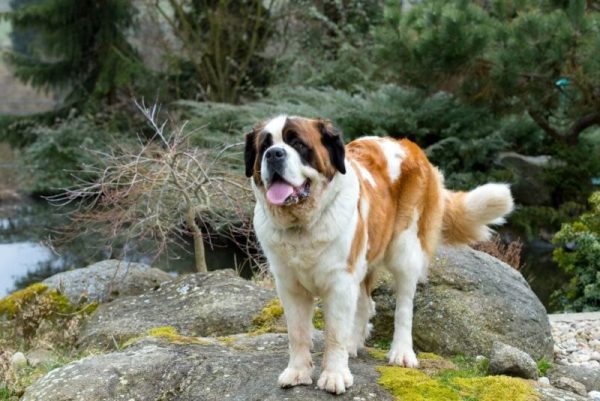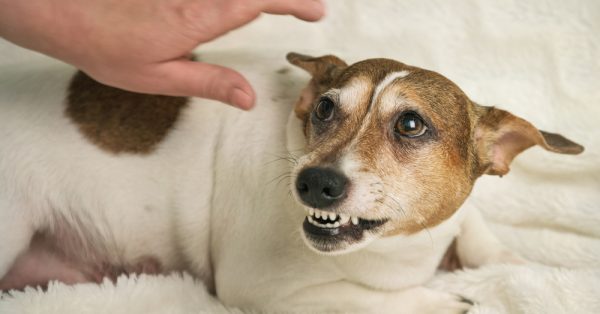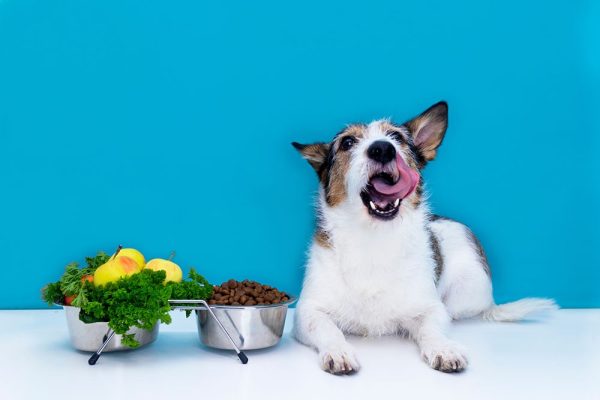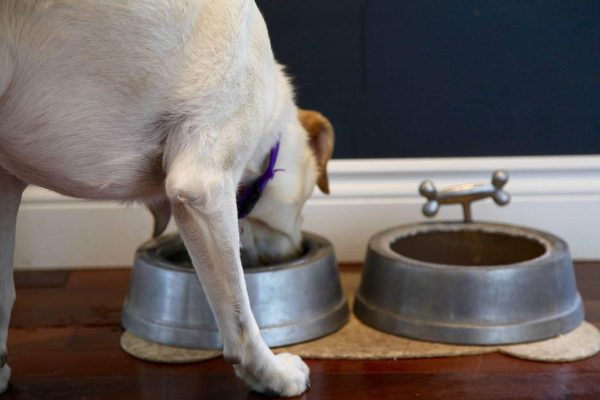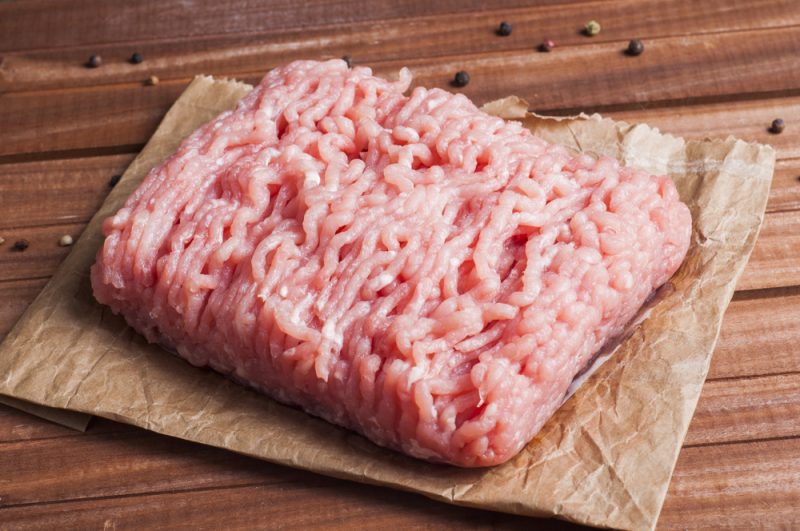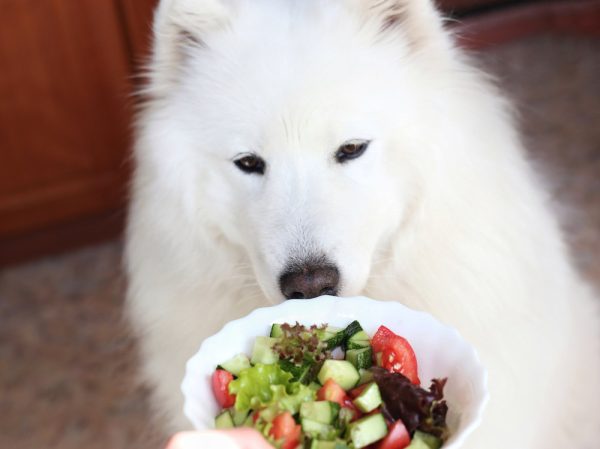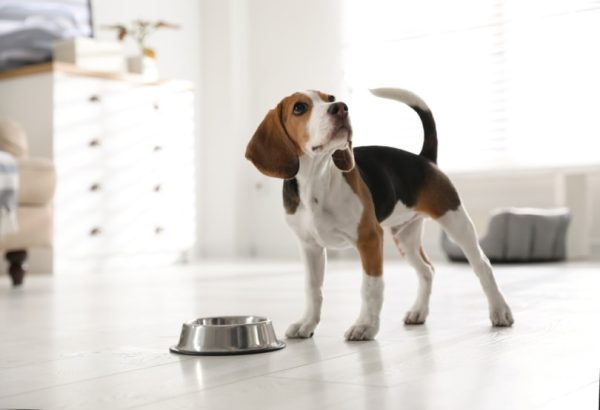In this article
View 8 More +The lovable Bearded Collie is a medium-sized dog that is smart, independent, and sometimes stubborn. With an athletic build and a lively personality, this breed is rarely a boring one. Most Bearded Collies are extremely friendly and get along well with both strange people and dogs—though sometimes they’re too friendly for their own good. They also excel in sporting events like herding and agility, and they love getting attention from their human companions. Are you eager to learn more about this impressive dog breed? Read on!
Breed Overview
Height:
20–22 inches
Weight:
40–60 pounds
Lifespan:
12–15 years
Colors:
Black, blue, brown, fawn
Suitable for:
Active households, families, singles
Temperament:
Smart, active, alert, lively, loyal
This breed is known for being independent and willful yet always friendly to those that they spend time with. This quick-witted pup tends to be charismatic and even boisterous in their day-to-day interactions. Some people think that this dog looks like the English Sheepdog, but make no mistake, this is a breed all their own.
Bearded Collie Characteristics

Bearded Collie Puppies
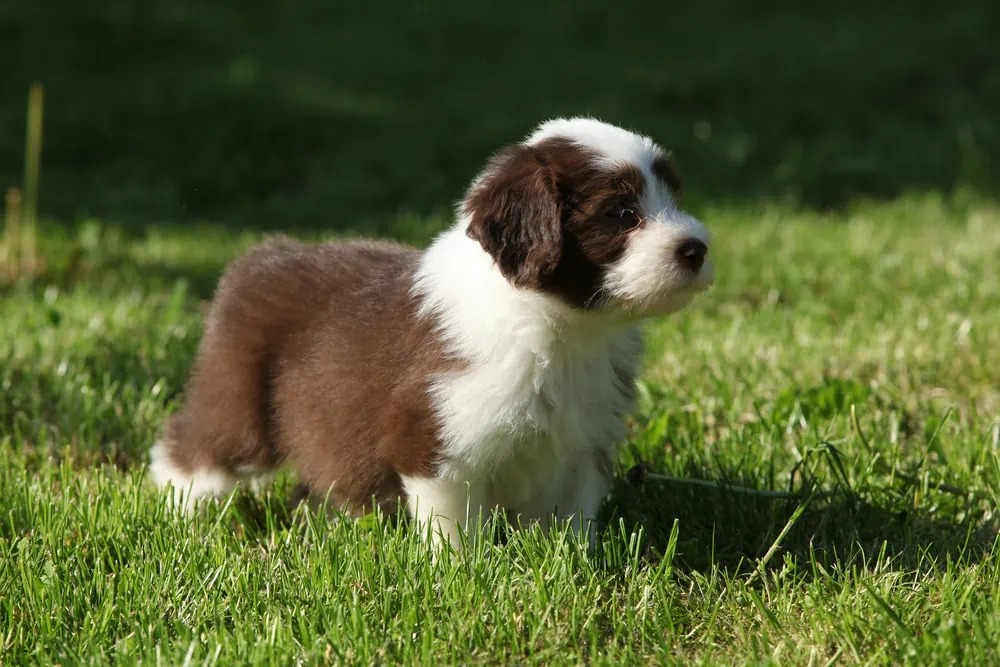
A Bearded Collie puppy is adorable, sweet, and curious. They’re independent dogs overall, but as a puppy, they tend to stick close to their mother and siblings as much as they can while they learn about how the world works. As they age, they start to venture off on their own more until they are confident in their ability to navigate their life.
They are quite fluffy as puppies, making them look like little “puff balls” until they grow and fill out, which comes with age. The average Bearded Collie puppy is sociable, good-natured, and full of energy, so they require plenty of space to explore and play, and they appreciate having another pup or a human companion to spend most of their time with.
Bearded Collie Origin & History
The origins of the Bearded Collie are not certain. It seems that the breed naturally evolved over time, so there is no pedigree to refer to or a way to trace the breed back to their original ancestors. The truth is that we don’t know what specific land the Bearded Collie originally hails from. Some believe that they are descendants of sheepdogs that once lived in Scotland but were carried to other parts of the world in the 1500s.
We do know that they are working dogs and have been used in jobs like livestock herding for centuries, so the breed is an old one—maybe even ancient. It’s thought that they were used for cattle driving during the 1700s and 1800s. A dog that closely resembles the breed was featured in a painting of the Scottish Duke of Buccleuch in the late 1700s.
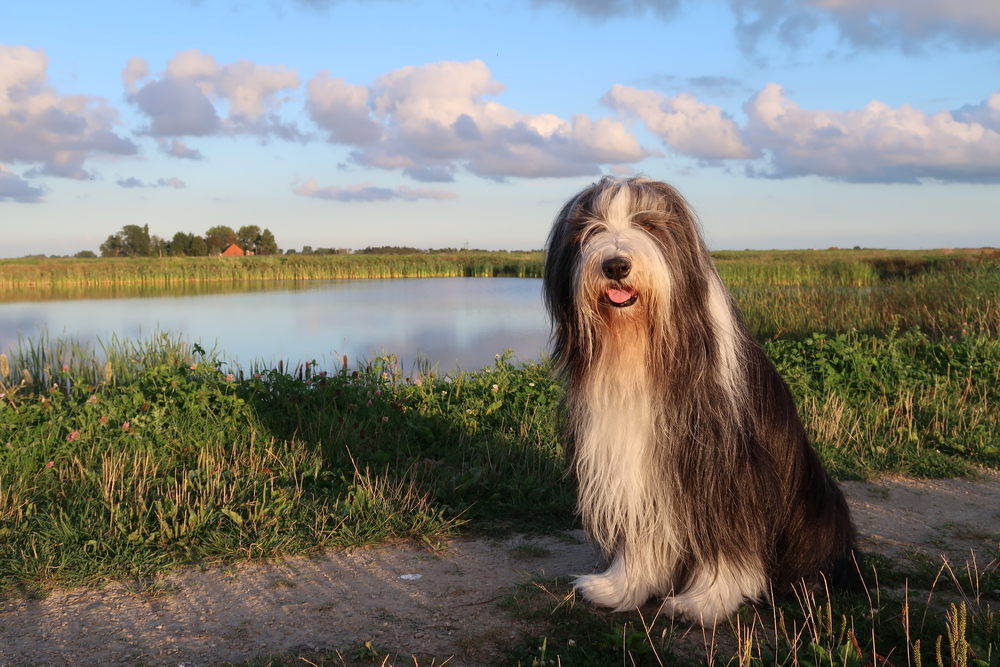

Temperament & Intelligence of the Bearded Collie
The typical Bearded Collie is fun-loving and excitable by nature. They seem to always be wagging their tails either out of happiness or anticipation. They are outgoing and interactive with their household human companions, and while pleasant with household guests, they can act reserved at first. Once they warm up to someone, though, they feel that they’ve made a life-long best friend.
Confident and curious, these dogs don’t shy away from exploring and having a good time when they’re outside. They’re happy to play at the dog park, and they love the challenge of mastering waves at the beach. They’ll camp all weekend without complaint, and they make excellent hiking buddies. The breed can be quite funny in social situations too.
Are These Dogs Good for Families? 👪
The Bearded Collie happens to make an excellent family pet! They tend to get along well with children of all ages, especially when it comes to playtime. The breed is well-mannered and usually patient, though the rambunctiousness of kids around them can inspire boisterous behavior that could lead to accidental injuries and the destruction of household items. Therefore, obedience training is a vital aspect of caretaking, not to be overlooked when bringing a Bearded Collie home for the first time.
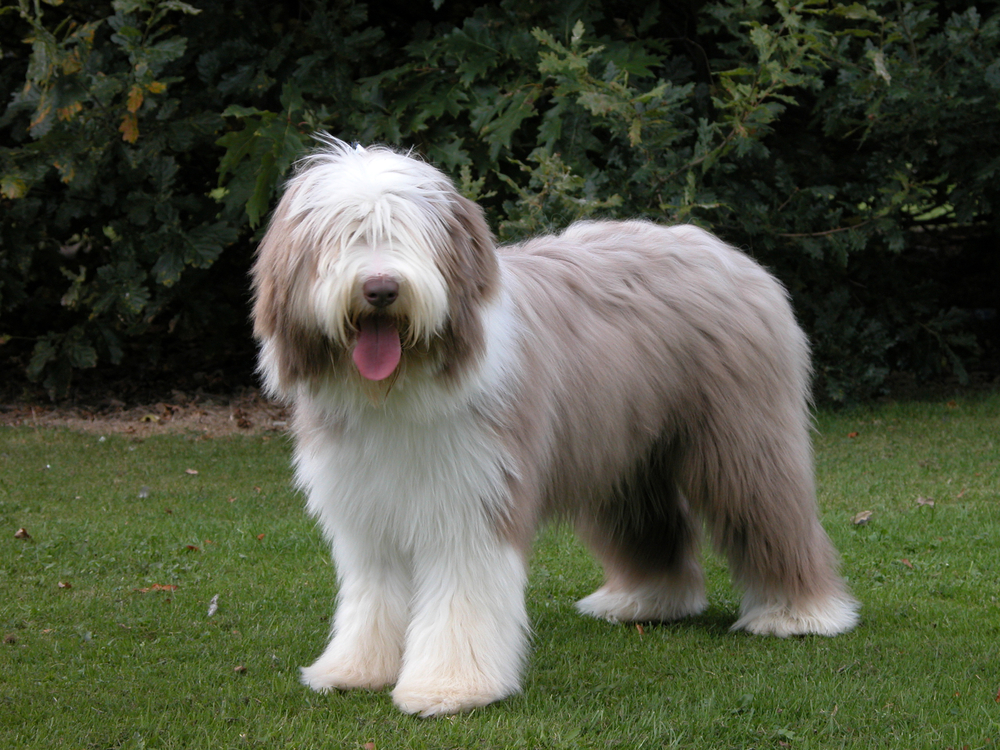
Does This Breed Get Along With Other Pets?
This breed does typically get along with other dogs and household pets, especially if they are socialized as they grow into adulthood. They shouldn’t have a problem interacting with other dogs in any public space, and they usually don’t mind accepting new dogs coming to live in their households throughout their lives.

Things to Know When Owning a Bearded Collie:
Food & Diet Requirements 🦴
The Bearded Collie likes to eat, making them prone to becoming overweight. Therefore, you’ll need to monitor their calorie intake with the help of a veterinarian. Treats can be used for training but should be avoided otherwise to prevent weight gain. If you’re serving commercial food, check that it’s of high quality and include real meat protein as the first ingredient. It should also be specific to the dog’s life stage—e.g., puppy, adult, and senior—to ensure that they’re getting the right amounts of nutrients throughout their life.
Exercise 🐕
Extremely energetic and lively, the Bearded Collie requires daily exercise to stay fit and happy. Puppies and seniors don’t need as much exercise as teens and adults do, though. A healthy teen and adult Bearded Collie should get at least 1 hour of exercise each day in the form of brisk walks or similar activities (jogging, hiking, running next to a bike, etc.), along with other physical engagements, such as playing fetch, taking trips to the dog park, and interacting with puzzle toys at home.
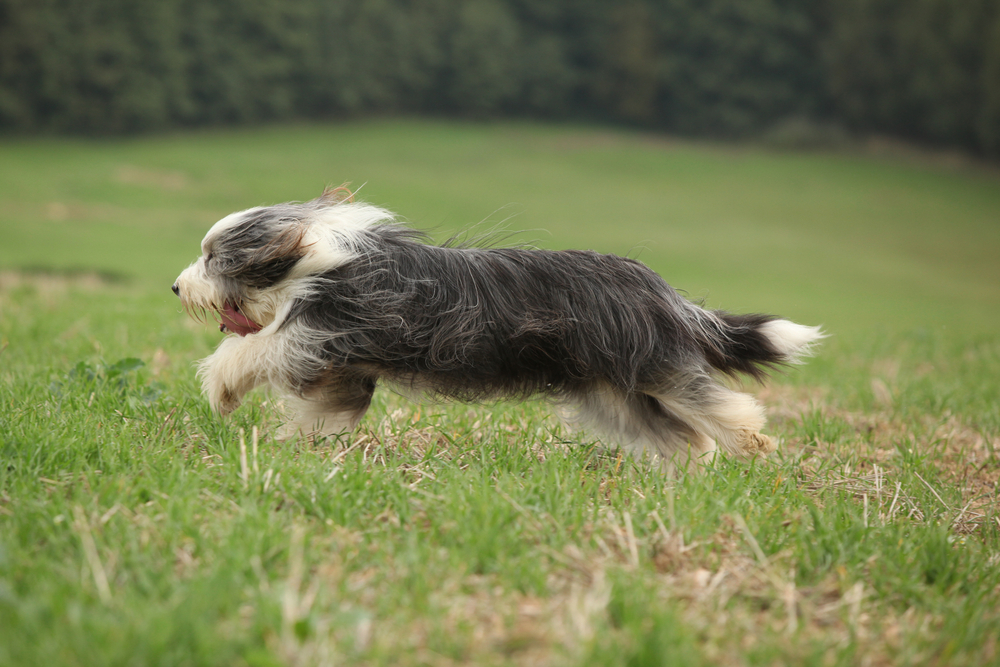
Training 🎾
Every Bearded Collie should have training to know how they’re expected to behave both indoors and outside of the home. Obedience training can start at about 8 weeks of age for basics like learning their name and to come when they are called. These dogs are independent and can get bored easily, so training sessions should be kept short. Two or three sessions of about 10 minutes each throughout the day can help ensure a well-behaved pup. Training should take place in a quiet space that is free of distractions.
Grooming ✂️
A fair amount of work must go into grooming a Bearded Collie to keep them looking and feeling their best. Daily brushing must take place to get rid of debris and keep tangles in check. It’s best to do this outside so loose hair doesn’t end up floating around your house. It may also be necessary to treat the coat with anti-tangle spray and to comb it with a pin rake to remove stubborn dead hair and keep the hair in good shape overall. This process should be done once a week and can take up to 1 hour.
Regular nail trimming should be done with a grinder to minimize the risk of cutting the nails too short. Bathing is not usually necessary unless mud or exposure to toxins is involved, then just be sure to use a dog-safe shampoo.
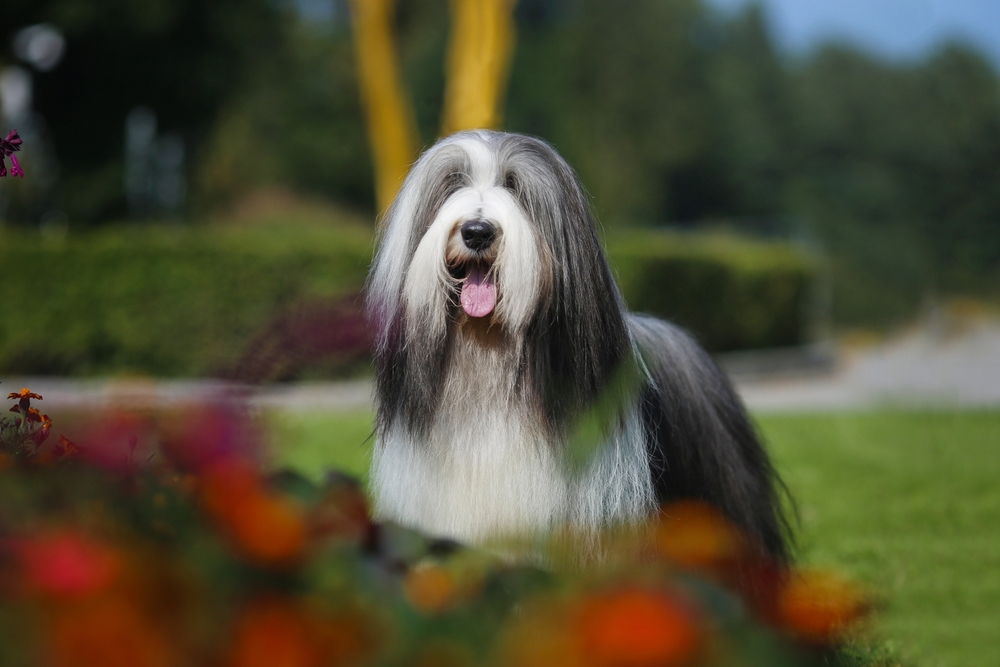
Health and Conditions 🏥
Like all dog breeds, there are health conditions that the Bearded Collie can be susceptible to. That said, the breed is considered healthy in general, especially when dealing with quality breeders. Here are the common conditions that can affect this breed.
- Allergies
- Hypothyroidism
- Hip dysplasia
- Progressive retinal atrophy
- Autoimmune diseases

Male vs. Female
The differences between male and female Bearded Collies are mostly anecdotal, but they are worth considering when deciding which sex to bring home as a pet. For instance, it’s said that female Bearded Collies are less affectionate than their male counterparts and that boys tend to be sweeter overall. The girls also seem to be nosier and more curious, while the boys are more content with whatever happens to be going on. In general, males are usually more outgoing, especially with strangers.

3 Little-Known Facts About the Bearded Collie
1. They Are Recognized by the American Kennel Club
The Bearded Collie officially became eligible to show in the Miscellaneous class starting in June 1974. They became recognized as part of the Herding Group once the group was established through the club in 1977.
2. They Can Be Extremely Vocal
If this breed doesn’t get enough exercise or attention, they can get extremely vocal and commence in nuisance barking, especially when left at home alone to their own devices. Daily exercise and interaction with human companions are a necessity to ensure good behavior and keep annoyances to a minimum.
3. Many Bearded Collies Like to Dig
While this is not a trait in all Bearded Collies, many seem to enjoy digging when they have the opportunity to do so. Therefore, the yard that they spend time in may end up with many little holes in the grass or gardens if they can’t engage in other activities to keep them busy and challenged.
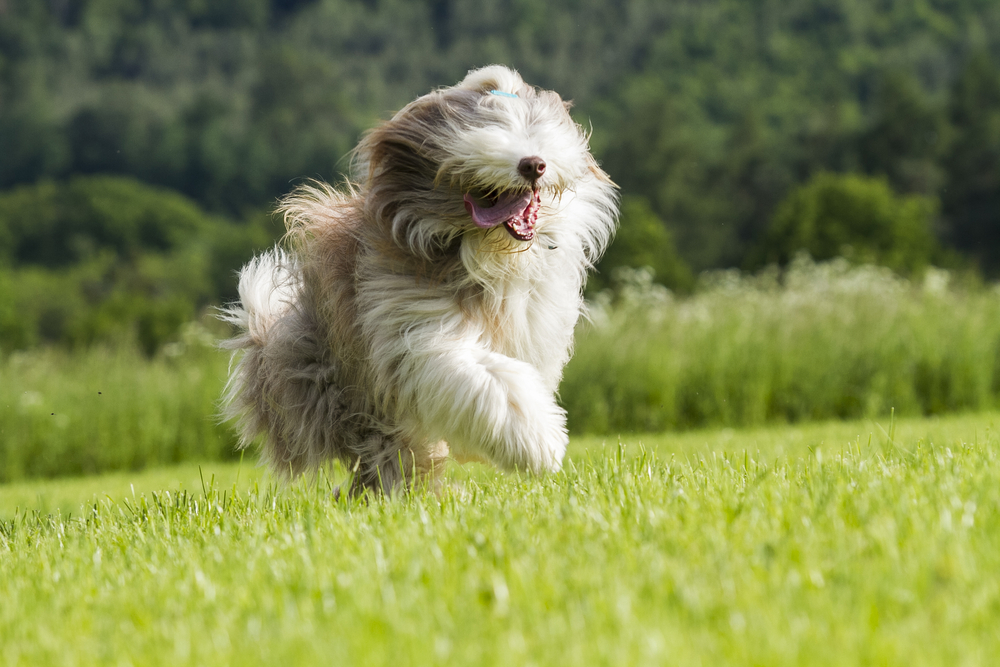

Final Thoughts
Bearded Collies are cute, shaggy dogs with athletic builds and an abundance of energy. They can get along well in a variety of different household dynamics but do best with active families and farmers. With a bit of training under their belt, they do great in social settings and can get along well with other dogs, whether in their home or in public. Now that you know more about the breed, you can better determine whether this is the right dog for you and your household.
See also:
- How to Tell If Your Dog Is Deaf: 9 Vet-Reviewed Signs
- Dog Debarking Surgery: Is It Legal & Vet-Approved Correction Tips
Featured Image Credit: Melounix, Shutterstock
